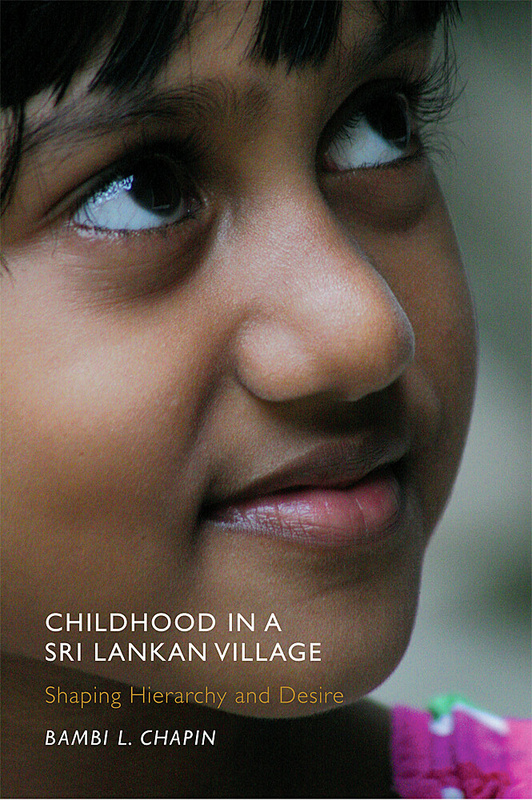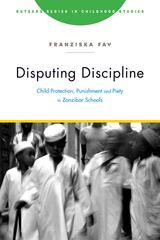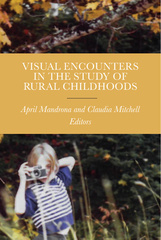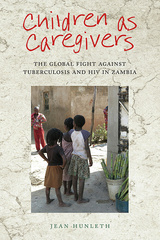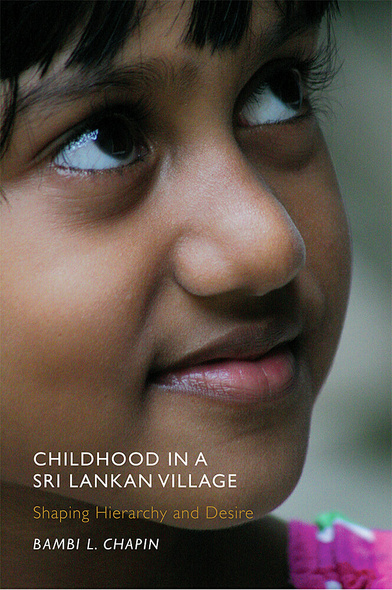
230 pages, 6 x 9
3 tables
Paperback
Release Date:30 Jun 2014
ISBN:9780813561653
Hardcover
Release Date:30 Jun 2014
ISBN:9780813561660
Childhood in a Sri Lankan Village
Shaping Hierarchy and Desire
Rutgers University Press
Like toddlers all over the world, Sri Lankan children go through a period that in the U.S. is referred to as the “terrible twos.” Yet once they reach elementary school age, they appear uncannily passive, compliant, and undemanding compared to their Western counterparts. Clearly, these children have undergone some process of socialization, but what?
Over ten years ago, anthropologist Bambi Chapin traveled to a rural Sri Lankan village to begin answering this question, getting to know the toddlers in the village, then returning to track their development over the course of the following decade. Childhood in a Sri Lankan Village offers an intimate look at how these children, raised on the tenets of Buddhism, are trained to set aside selfish desires for the good of their families and the community. Chapin reveals how this cultural conditioning is carried out through small everyday practices, including eating and sleeping arrangements, yet she also explores how the village’s attitudes and customs continue to evolve with each new generation.
Combining penetrating psychological insights with a rigorous observation of larger social structures, Chapin enables us to see the world through the eyes of Sri Lankan children searching for a place within their families and communities. Childhood in a Sri Lankan Village offers a fresh, global perspective on child development and the transmission of culture.
Over ten years ago, anthropologist Bambi Chapin traveled to a rural Sri Lankan village to begin answering this question, getting to know the toddlers in the village, then returning to track their development over the course of the following decade. Childhood in a Sri Lankan Village offers an intimate look at how these children, raised on the tenets of Buddhism, are trained to set aside selfish desires for the good of their families and the community. Chapin reveals how this cultural conditioning is carried out through small everyday practices, including eating and sleeping arrangements, yet she also explores how the village’s attitudes and customs continue to evolve with each new generation.
Combining penetrating psychological insights with a rigorous observation of larger social structures, Chapin enables us to see the world through the eyes of Sri Lankan children searching for a place within their families and communities. Childhood in a Sri Lankan Village offers a fresh, global perspective on child development and the transmission of culture.
What makes this book so special is that it does not stop at description, as do most ethnographies. It goes on to explain Sinhalese childhood and child rearing, doing so within a well-considered, smartly-deployed psychoanalytic framework.
This is a new kind of research on childhood, one that boldly focuses on a few trajectories of enculturation rather than covering a conventional set of contextual categories … Chapin carries this off with remarkable sophistication, skill and humility in a book that should be read by every student in this field.
This is a nuanced and subtle book … I found it enthralling.
Chapin's work is a significant contribution to the anthropology of childhood. It tackles important questions about the meaning of child care practices and patterns.
BAMBI L. CHAPIN is an associate professor of anthropology at the University of Maryland, Baltimore County.
Acknowledgments
Note on Translation and Transliteration
1. Introduction
2. Sri Lanka: Setting the Ethnographic Context
3. Socializing Desire: Demanding Toddlers and Self-Restrained Children
4. Shaping Attachments: Learning Hierarchy at Home
5. Making Sense of Envy: Desire and Relationships in Conflict
6. Engaging with Hierarchy outside the Home: Education and Efforts at Change
7. Culturing People
Notes
References
Index
Note on Translation and Transliteration
1. Introduction
2. Sri Lanka: Setting the Ethnographic Context
3. Socializing Desire: Demanding Toddlers and Self-Restrained Children
4. Shaping Attachments: Learning Hierarchy at Home
5. Making Sense of Envy: Desire and Relationships in Conflict
6. Engaging with Hierarchy outside the Home: Education and Efforts at Change
7. Culturing People
Notes
References
Index

